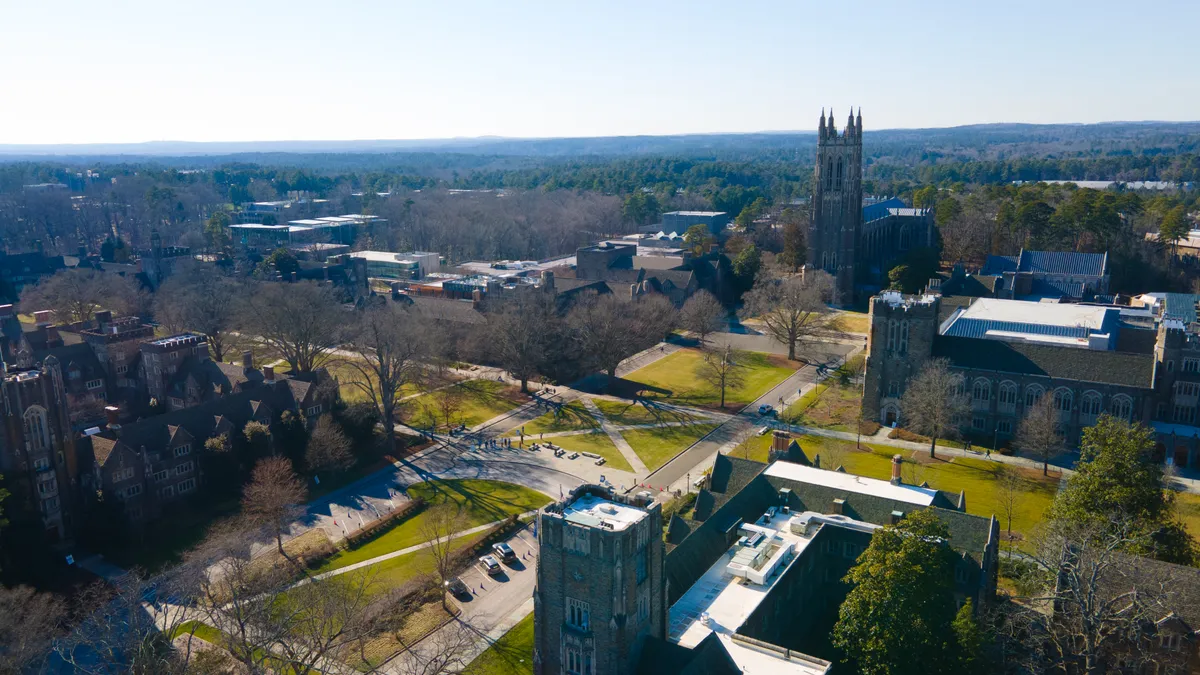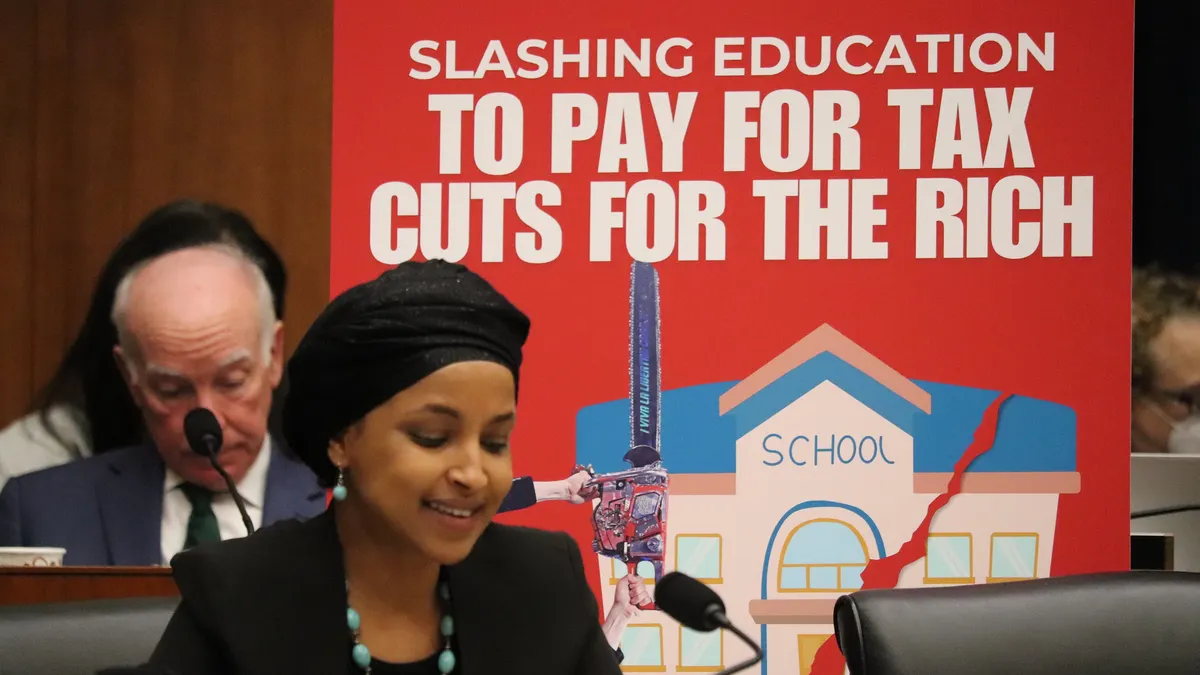Dive Brief:
- Just one in four U.S. adults (27%) believes an education beyond high school is affordable to anyone in the country who needs it, according to a new Gallup poll.
- Public opinion on this issue has been consistent in Gallup's poll since the organization started posing the question in 2012.
- Gallup's findings support other recent research suggesting the public is skeptical about the cost and value of higher education.
Dive Insight:
Myriad studies have highlighted potential barriers to paying for college, especially among low-income students and other vulnerable populations.
A recent report from the National College Access Network identified fewer than half of U.S. public colleges as being affordable for poor students.
Similarly, research from The Education Trust shows that in almost every state, first-time, low-income students would need to pay more than $3,000 to attend a four-year public college, even if they secured federal grants, aid and scholarships and worked 10 hours a week at minimum wage.
College access advocacy groups such as The Education Trust have called for solutions that include increasing the size of the federal Pell Grant. When Congress passed the $1.4 trillion 2020 spending package last month, it boosted the maximum Pell award by $150 to $6,345. In its report, The Education Trust recommended doubling the size of Pell and indexing it to inflation.
Funding for Federal Work-Study increased by $50 million in the new budget to total $1.2 billion for the year.
Most U.S. adults' views of higher ed affordability have been unchanged, though, according to Gallup's polls.
Roughly a quarter of respondents every year since 2012 has indicated they do not see postsecondary education as affordable. It has fluctuated slightly, to a low of 21% in 2014 and a high of 27% last year. In its most recent survey, Gallup polled more than 1,000 adults.
Stephanie Marken, executive director of education research at Gallup, noted in a summary of the poll that despite the proliferation of shorter-term credentials designed to improve access to higher ed, public opinion on affordability has stayed stagnant.
Meanwhile, Americans' views about college accessibility has steadily dropped in the last decade. In 2011, about 71% of adults that Gallup polled said they believed education post-high school was available to anyone in the U.S. who needs it. In the most recent poll, that figure had dropped more than 10 percentage points to 60% in 2019.
Even fewer young adults feel higher ed is accessible. When Gallup broke out the results of the question by age, only 46% of the respondents ages 18 to 29 agreed that higher ed opportunities were available to everyone in the country. And just 22% of respondents in that age group believe higher ed is affordable.










